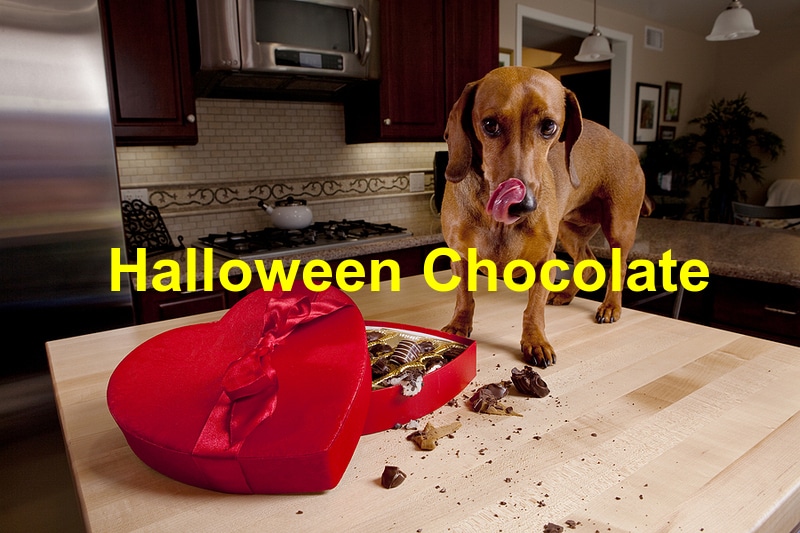The Halloween holiday is usually associated with lots of excitement and fun for the whole family. One notable tradition during Halloween is eating various types of treats, including candies and chocolate among others. Even though indulging in such treats may only leave your kids with a stomach ache or sugar rush, they can cause serious harm to your dogs.
Caffeine and chocolate are part of a special group of plants known as methylated xanthine alkaloids. These two compounds stimulate and excite various processes in the body including the nervous system, respiratory centres and heart rate. In addition, when these two compounds are combined to form chocolate bars or candy, they are quite delicious and dogs love eating them in huge quantities.
Is chocolate toxic to dogs?
If the chocolate bar your dog is eating contains a high concentration of cocoa, then the risk of toxicity and health complications is also high. That is because having a high cocoa concentration means that the chocolate will contain more theobromine and this compound is what is toxic to dogs when consumed in very high doses. Conversely, since white chocolate does not contain any cocoa, it is actually safe for dogs.
Most candy bars available today contain trace amounts of theobromine as they are largely made using milk chocolate. That means your dogs will be ingesting very small amounts of cocoa when they eat such products. However, the dangerous forms of chocolate are the darker varieties as they contain significantly higher amounts of cocoa and theobromine.
What to do if your dog eats chocolate
The first thing you should check is the quantity and type of chocolate that the dog has ingested so that you can determine the next course of action. It is vital to act quickly since chocolate is usually quickly absorbed into a dog’s body within less than one hour. The initial symptoms of chocolate toxicity in dogs include stimulant effects like pacing, faster heartbeat rate and erratic behaviours.
If you cannot figure out the specific ingested dose of chocolate, the best way forward is to call the ASPCA poison control number to discuss the issue with a toxicologist. You can also take your dog to the veterinarian for more guidance. Even though there aren’t any specific tests for evaluating chocolate toxicity in dogs, most vets will induce vomiting to decontaminate your pet’s digestive tract and prevent further chocolate absorption. Overall, remember that caffeine and chocolate are unhealthy for your dogs, so ensure your pets are safe during this Halloween holiday.
References: Dogtime, PetHealthNetwork, Modern Dog Magazine





